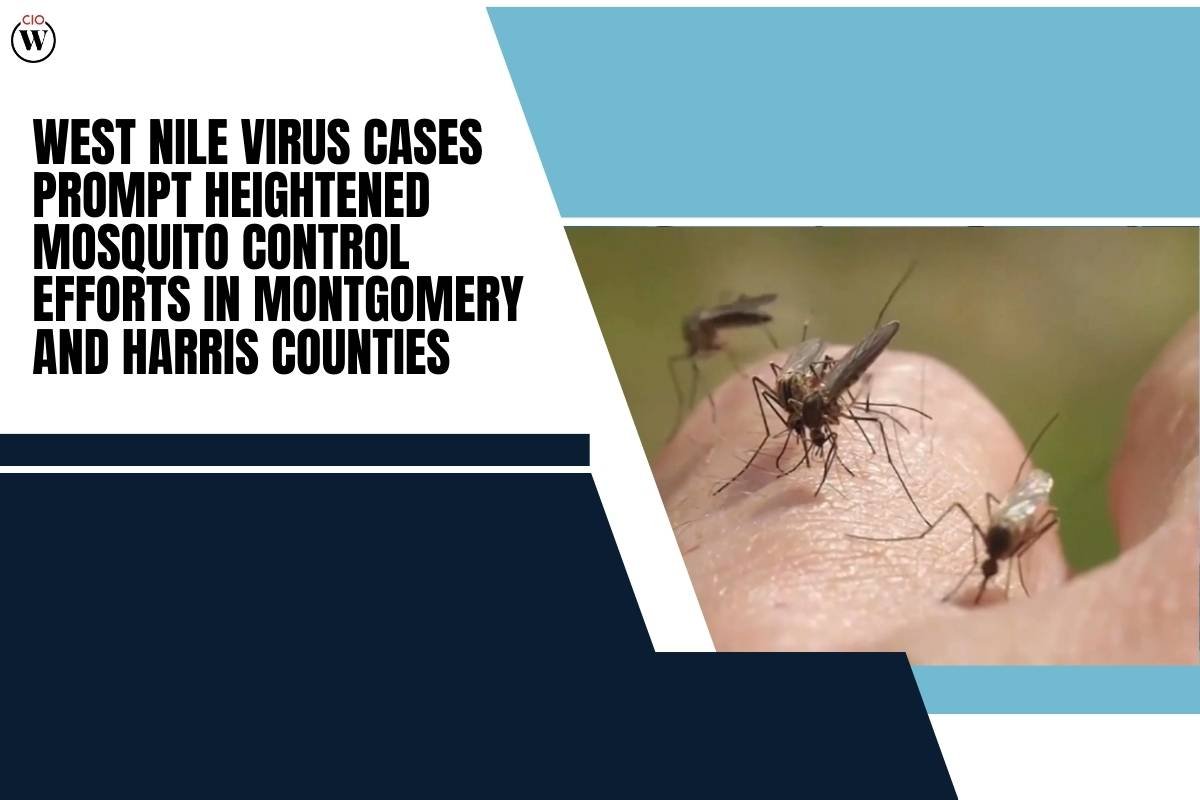Source – ABC13
Montgomery County health officials are on high alert after confirming the first human case of West Nile virus in the area this week. According to reports from KHOU 11, the county has experienced unusually high levels of the virus, culminating in the discovery of the first human infection of the year. The affected individual, a woman in her 50s residing in the 77304 ZIP code area near Conroe, is undergoing medical treatment. Pending confirmation from state health authorities, this case would mark Texas’ inaugural human instance of West Nile virus in 2024.
Local health authorities have intensified their mosquito control efforts in response to the heightened risk. The Montgomery County mosquito and vector control division has escalated evening sprayings, focusing particularly on neighborhoods like River Oaks and Upper Kirby, where a significant number of positive mosquito samples have been identified. This proactive approach aims to curb mosquito populations and minimize the spread of the virus, which thrives in environments following periods of heavy rainfall and flooding.
Harris County’s Preemptive Measures Amid Rising Mosquito-Borne Concerns
Meanwhile, neighboring Harris County is also ramping up efforts to prevent the spread of West Nile virus. Officials have reported 235 positive samples of the virus so far this year, a stark increase compared to the cumulative totals of the previous two years. Despite this surge in mosquito activity, no human cases have been confirmed in Harris County as of the latest reports. However, a blue jay tested positive for the virus in Cypress earlier this week, indicating a local presence of the disease.
In response, Harris County public health officials are advising residents to take precautions to minimize exposure. Recommendations include eliminating standing water sources that serve as mosquito breeding grounds, using EPA-registered insect repellents, and wearing protective clothing, such as long sleeves and light-colored garments. These measures are crucial in mitigating the risk of West Nile virus transmission, which primarily occurs through mosquito bites, with birds acting as primary carriers of the virus.
Understanding West Nile Virus and Public Health Recommendations
West Nile virus typically manifests in humans with symptoms ranging from mild flu-like illness to severe conditions such as encephalitis or meningitis, which can be life-threatening in some cases. The virus cycles between birds and mosquitoes, with humans serving as incidental hosts. Given the recent environmental conditions conducive to mosquito breeding, health officials emphasize the importance of community-wide efforts to control mosquito populations and reduce human exposure to the virus.
Both Montgomery and Harris Counties have reported elevated levels of West Nile virus compared to other parts of Texas, underscoring the need for sustained vigilance and proactive mosquito management strategies. As health authorities continue to monitor the situation closely, residents are urged to remain vigilant and implement recommended preventive measures to safeguard against West Nile virus during the peak mosquito season.
Heightened awareness and coordinated mosquito control efforts are pivotal in mitigating the impact of West Nile virus outbreaks in Montgomery and Harris Counties. By prioritizing public health measures and community engagement, local officials aim to protect residents from the potentially serious consequences of mosquito-borne illnesses.
Also read: CDC Panel Recommends RSV Vaccines For Older Adults At High Risk









